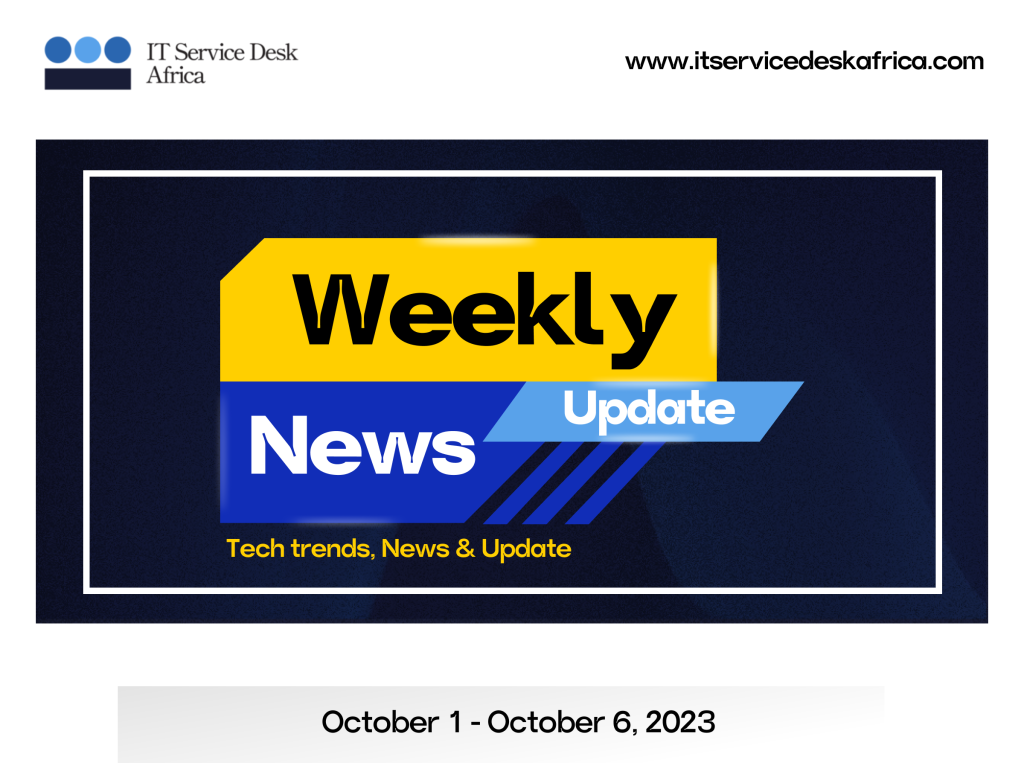1. Microsoft Unveils AI Tools to Streamline Healthcare Administration
Microsoft has announced a new suite of AI-powered tools designed to alleviate the administrative burden faced by healthcare professionals. This initiative is part of the company’s ongoing commitment to improving patient care and supporting doctors and nurses in their daily tasks.
The new AI tools are expected to automate a variety of administrative tasks, such as scheduling appointments, managing electronic health records, and processing insurance claims. By automating these time-consuming tasks, healthcare providers can focus more on patient care and improve overall efficiency.
Microsoft’s investment in healthcare AI is a significant step forward in leveraging technology to address the challenges faced by the healthcare industry. As AI continues to advance, we can expect to see even more innovative solutions that improve patient outcomes and streamline healthcare operations.
2. TikTok Announces Global Layoffs, Impacting Hundreds of Employees
In a significant move that has sent shockwaves through the tech industry, TikTok, the popular short-form video platform owned by ByteDance, has announced layoffs affecting hundreds of employees worldwide. While the exact number of job cuts remains undisclosed, it is confirmed that a substantial portion of the layoffs will take place in Malaysia.
This latest round of job cuts comes amidst a broader trend of tech companies reducing their workforce in response to economic uncertainty and changing market conditions. TikTok, which has experienced meteoric growth in recent years, is not immune to these pressures.
The layoffs are expected to impact various departments within TikTok, including engineering, marketing, and content moderation. While the company has not provided specific reasons for the job cuts, it is believed that the decision was driven by a need to streamline operations and focus on core priorities.
The news of the layoffs has sparked concerns about the future of TikTok and its employees. Many are worried about the potential impact on the company’s growth and its ability to compete in the highly competitive social media landscape. Additionally, the layoffs are likely to have a significant impact on the local job market in Malaysia.
As the company continues to navigate these challenging times, it remains to be seen how the layoffs will affect TikTok’s long-term prospects. It is also unclear whether the company will implement any measures to support the affected employees during this difficult transition.
3. Federal Government Partners with Google to Train 2,500 Young Creatives
In a significant boost to the creative industry in Nigeria, the Federal Government, through the Ministry of Arts, Culture, and the Creative Economy (FMACCE), has joined forces with Google to launch a training initiative aimed at empowering 2,500 young creatives across the country.
The training program will equip young creatives with the skills and knowledge needed to succeed in the digital age. Participants will receive training in various areas, including digital marketing, content creation, and entrepreneurship. The initiative is designed to help young creatives monetize their talents and contribute to the growth of the Nigerian creative economy.
The Federal Government and Google have expressed their commitment to scaling up the program to reach 10,000 young creatives in the future. This expansion will further strengthen the creative industry in Nigeria and create new opportunities for young people.
This partnership between the Federal Government and Google is a positive step towards fostering creativity and innovation in Nigeria. By investing in the training and development of young creatives, the government is helping to create a more vibrant and dynamic creative economy.
4. Vodafone Partners with Google to Offer Advanced Cloud Services and AI Tools
Vodafone Group Plc, a leading global telecommunications company, has announced a strategic 10-year partnership with Alphabet Inc.’s Google. The partnership aims to provide Vodafone’s customers in Africa and Europe with access to cutting-edge cloud services, generative artificial intelligence (AI) tools, and enhanced cybersecurity features.
Through this collaboration, Vodafone will leverage Google Cloud’s advanced infrastructure and AI capabilities to offer its customers a wider range of innovative solutions. This includes cloud-based services for businesses, as well as AI-powered tools for various applications.
The partnership is expected to drive growth and innovation for both Vodafone and Google. By combining Vodafone’s extensive customer base with Google’s technological expertise, the two companies can create new opportunities and deliver enhanced value to their customers.
This strategic alliance marks a significant milestone for both Vodafone and Google, as they work together to shape the future of telecommunications and technology.
5. E-commerce Fraud to Reach $107 Billion Globally by 2029
A recent study by Juniper Research has painted a concerning picture of the future of e-commerce fraud. The research firm predicts that global e-commerce fraud losses will skyrocket from $44.3 billion in 2024 to a staggering $107 billion by 2029, representing a growth of 141%.
The increase in e-commerce fraud can be attributed to several factors, including the growing popularity of online shopping, the increasing sophistication of fraud techniques, and the vulnerability of e-commerce platforms to cyberattacks.
The study warns that the rise in e-commerce fraud poses a significant threat to both consumers and businesses. For consumers, fraudulent transactions can lead to financial losses and identity theft. For businesses, fraud can damage their reputation, increase operational costs, and reduce customer confidence.
To combat the growing threat of e-commerce fraud, businesses must invest in robust fraud prevention measures, including advanced fraud detection technologies and employee training. Additionally, consumers should be aware of the risks associated with online shopping and take steps to protect themselves from fraud.
6. Starlink Surges to 10th Largest ISP in Kenya Within a Year
In a significant milestone, Starlink, the satellite internet service provider launched by SpaceX, has quickly risen to become the tenth-largest internet service provider (ISP) in Kenya just one year after its debut.
According to data from Kenya’s Communications Authority (CA), Starlink has managed to attract over 8,000 subscribers in the country since its launch. This rapid growth is a testament to the increasing demand for high-speed internet connectivity in Kenya and the appeal of Starlink’s satellite-based solution.
Starlink’s success in Kenya can be attributed to several factors, including its ability to provide reliable internet access in remote areas that are underserved by traditional terrestrial networks. Additionally, Starlink’s low latency and high-speed capabilities have made it a popular choice for both residential and commercial customers.
The entry of Starlink into the Kenyan market has increased competition among ISPs and is expected to drive down prices and improve the overall quality of internet services in the country. As Starlink continues to expand its operations in Kenya and other African markets, it is poised to play a significant role in bridging the digital divide and promoting economic development.




